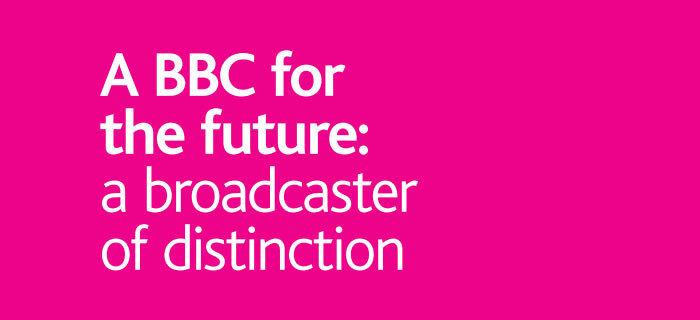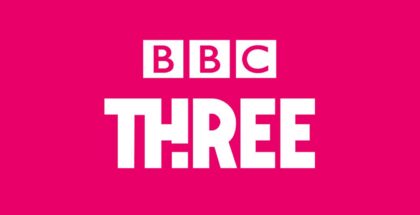What does the white paper mean for the BBC?
David Farnor | On 12, May 2016
The government has published its white paper outlining its plans for the BBC’s future, including transparency over the top-paid talent and a new governing board to replace the BBC Trust.
The BBC’s current Royal Charter, its eighth, comes to an end in December, and the corporation has been in talks with the government about a range of issues over the past 10 months. The public service broadcaster, which has a remit to “inform, educate and entertain”, will be “a stronger, more independent, more distinctive” organisation, says John Whittingdale, Secretary of State for Culture, Media & Sport, in the document.
Potential proposals that came to light during the consultation process included the possibility of ordering the BBC to scale down, remove its more mainstream content that was competing with other broadcasters (or broadcast it at different times) and instead focus on more “distinctive” content.
Today’s white paper, though, has apparently backtracked on most, if not all, of those issues, following huge public and industry outcry.
“The importance of the BBC determining what programmes it makes and when it shows them has been preserved,” says the BBC in response to the paper. “The Government has no plans to tell the BBC what programmes to make, or when to show them, nor is it providing regulators with the power to do so. The White Paper, rightly, says this is a matter for the BBC’s board – just as it is today.”
Possible plans to use the Licence Fee, which funds the BBC, to set up a fund for diversity and children’s programming for other channels have also been revised, with that fund instead being drawn from the government’s previous under-spend on broadband funding.
The news, then, appears to be broadly good news for the BBC, with the white paper confirming the agreement made between the corporation and the government last year that will see the Licence Fee loophole closed – requiring people only using BBC iPlayer’s catch-up services to pay the fee – helping to recoup some of the BBC’s shortfall in funding.
“The proposals that the government has set out in this white paper are about ensuring the BBC has a bold, strong and stable decade ahead,” writes Whittingdale. “They will embolden the BBC to take risks, confidently and unashamedly to create the highest quality, distinctive content for all audiences.”
“Like any organisation the BBC is not perfect. And it has made mistakes. What is important is that the BBC learns from those mistakes, and that previous failings are addressed,” he continues. “In renewing the BBC’s Royal Charter, therefore, the government wants to enhance the best of the BBC, but address those areas where it could, and should, do better.
“The government is clear that the BBC has a vital and enduring role to
play for the next Charter period and beyond.”
But there are some unpopular recommenations tucked away in the document, which raise questions about the BBC’s independence in the future.
What exactly does the white paper mean for the BBC? Here’s a rundown of the key points:
A longer charter
The charter will be extended to 11 years to take debates about the BBC out of the election cycle, protecting it from political influences.
Licence Fee loophole closed
The funding agreement the BBC made with the Government last year is confirmed. The BBC will take on responsibility for TV licences for the over 75s, in exchange for modernisation of the Licence Fee to close the iPlayer loophole this autumn, an increase in the Licence Fee linked to inflation, and no new top-slicing.
“With the extra £85 million per year for the World Service, the BBC’s funding settlement is comparable to other public sector bodies – where funding has not been protected,” says the BBC.
The Licence Fee is also now secure for the next 11 years. As per normal, there will be a funding review at the mid-term. There will also be a health check “focusing on the new governance and regulatory reforms” that will not look at the BBC’s purposes, mission, or Licence Fee model.
Creation of BBC Studios
The BBC’s reform programme has been endorsed, so it can press ahead with plans to create BBC Studios as a commercial subsidiary and allowing the BBC, for the first time, to make programmes for others.
No reduction in scale
The white paper has not argued that the BBC should reduce its scale or scope, or that we should sell commercial assets. It also acknowledges the BBC’s significant progress on improving efficiency.
Call to be “distinctive”
The white paper also calls on the BBC to be distinctive, which was previously a word used by Whittingdale in connection with potential cuts in the BBC’s scale and scope.
“During the debate, we have shown how BBC services are already distinctive today while also being successful,” comments the BBC. “We support the ambition to be even more distinctive in the future, but it is important that the implementation of the white paper’s proposals are done in a proportionate way to ensure the BBC’s creativity is enhanced and not diminished. We would not support the addition of red tape and box-ticking.”
Publication of most expensive wages
The BBC will be required to publish the wages of any talent paid over £450,000, a group that is expected to include Radio 2 and Top Gear host Chris Evans. This is to “promote greater transparency within the BBC through enabling Licence Fee payers to understand how the BBC spends its budget”, says the paper.
Regulation by Ofcom
Ofcom is recommended to be the external independent regulator of the BBC, bringing the BBC in line with other broadcasters.
NAO to become financial auditor
The National Audit Office will become the BBC’s financial auditor and scrutinise BBC spending and value for money.
Abolish the BBC Trust
The BBC Trust will be abolished and replaced by a “unitary boar”, which will be fully responsible for the governance of the BBC and the delivery of its services. At least half of the board will be appointed by the BBC itself, with others appointed through a public, government-led process – including the board’s Chair, Deputy Chair and members for each of the four nations of the UK (a total of six members).
The final point, however, has raised some concerns inside the BBC and within the industry in general.
Tony Hall, Director-General of the BBC, says the paper “delivers a mandate for the strong, creative BBC the public believe in”.
He adds, though, that the BBC has “an honest disagreement with the Government on this”.
“I do not believe that the appointments proposals for the new unitary board are yet right. We will continue to make the case to government. It is vital for the future of the BBC that its independence is fully preserved,” he comments.
“While there are many things we strongly back and endorse in the White Paper, the current proposals for the unitary board require further consideration. In terms of the process, we think the chairman and deputy chairman should be appointed by the Government through an independent public appointments process. After that, we want a board that is the right size, with the right balance of skills and the right talents, appointed in the right way,” he explains.
The BBC is also concerned about the appointment of the NAO as the BBC’s auditor, arguing that any further expansion of their role “must include an explicit exclusion for editorial decision-making”, which is not appropriate.
After a passionate defence of the BBC at the BAFTAs last weekend, Wolf Hall director Peter Kosminsky has also spoken out against the board proposals.
“If word gets out that the BBC’s editorial board has six government nominees on it, you can kiss goodbye to any sense of the BBC being an independent broadcaster,” he told the press.
“Some of the more terrifying proposals have failed to reach the White Paper it’s true, but the central one which troubles me, and which was the subject of my speech at Bafta on Sunday, is still there… Why do we need government nominees on a public service broadcaster?”
You can read the full white paper here.




















